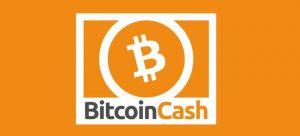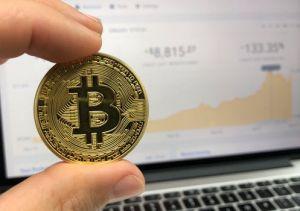Despite being a ‘peer-to-peer electronic cash’, Bitcoin (BTC) has a major drawback – the coin is not suited for everyday transactions due to its high transaction fees. After a prolonged disagreement in the Bitcoin community about the protocol’s future, the community decided to ‘fork’ a new blockchain from the existing one. Changes made to the governing rules of the Bitcoin blockchain resulted in the creation of Bitcoin Cash (BCH) in August 2017.
As an alternative to Bitcoin by design, it is worth considering: should you invest in Bitcoin Cash?

Bitcoin Cash Price
Bitcoin Cash Price Today
The price of Bitcoin Cash (as of March 2024) is around $240 per token. The current BCH price is up by over 80% compared to its January 2023 price, due in part to bullish sentiment in the overall crypto market towards Q3 and Q4 2023.
Factors Influencing Bitcoin Cash’s Price
- Supply and Demand: The price of BCH is affected by the general principles of supply and demand. If demand outweighs supply, BCH becomes more scarce, typically reflected by an increase in price.
- Bitcoin Performance: As an extension of Bitcoin, a parallel relationship exists between Bitcoin Cash and Bitcoin’s price actions. Due to Bitcoin’s market dominance, when it experiences a price increase, Bitcoin Cash tends to follow. Similarly, an unfavorable Bitcoin price movement will likely result in a price decline for Bitcoin Cash.
- Market Sentiment: Coin price actions in the crypto markets are usually influenced by the general market sentiment. A positive outlook among traders and investors can cause a spike in coin prices, including Litecoin. Conversely, negative news can dampen investors’ sentiment, resulting in quick price depreciation.
- Macroeconomic Events: Macroeconomic factors including inflation, currency devaluation and regulatory policies can impact the price of BCH. Increasing adoption or institutional acceptance will likely increase confidence and demand around crypto trading, and therefore it is more likely that the price of Bitcoin Cash will increase.
What Is Bitcoin Cash?
So, exactly what is BCH? Bitcoin Cash is the native token of the Bitcoin Cash blockchain. The main aim for the creation of Bitcoin Cash was to develop a coin that is better suited for cheaper and easier everyday payments than Bitcoin.
Bitcoin Cash vs Bitcoin
Bitcoin Cash has some unique features and characteristics that distinguish it from Bitcoin:
- Increased Block Size: BCH has a block size of 32MB, compared to Bitcoin’s 1MB. This means that each block on the Bitcoin Cash blockchain can contain more data and handle more transactions per minute, leading to cheaper transactions.
- Faster Transaction Rate: Because Bitcoin Cash’s block size is significantly larger than that of Bitcoin, it can contain more transaction data, leading to increased transaction speed.
- Lower Transaction Fees: Compared to Bitcoin, Bitcoin Cash has a lower transaction fee. This is because Bitcoin’s block size leads to congestion during peak hours, and consequently a spike in transaction fees. Bitcoin Cash’s larger block size reduces the likelihood of congestion and therefore keeps transaction fees at a minimum.
- Decentralised Finance (DeFi) and Smart Contracts: Bitcoin does not support smart contracts or DeFi features. Bitcoin Cash, on the other hand, utilises smart contracts to build more complex functions on the blockchain, using the CashScript smart contract language. CashShuffle and CashFusion are two such functions.
- Replace-by-Fee: The Bitcoin blockchain has a feature that helps users override a transaction that is taking a long time to process, by initiating the same transaction a second time, but with a higher transaction fee. Bitcoin Cash doesn’t have this feature. This makes sense, considering that the aim of the blockchain is to facilitate faster transactions.
- Token Issuance: On the Bitcoin blockchain, project developers issue tokens using a platform called Omni Layer. Bitcoin Cash, on the other hand, created the Simple Ledger Protocol (SLP), a system for issuing tokens on the BCH blockchain, similar to what is obtainable on the Ethereum blockchain.
Despite these characteristics, there is an extent of perceived controversy around Bitcoin Cash because of how it was forked from Bitcoin. Some Bitcoin loyalists disapprove of the diversion from the original vision for Bitcoin outlined in the original whitepaper, and there may be uncertainty surrounding BCH among investors who would rather buy the so-called “real thing”.
How Does Bitcoin Cash Work?

Like Bitcoin, Bitcoin Cash uses the Proof-of-Work (PoW) consensus mechanism. This requires miners to solve complex algorithms in order to validate transactions and create new blocks. By adding verified data to the blockchain, Bitcoin Cash miners provide security to avoid double-spending or manipulations.
Bitcoin Cash uses Bitcoin’s SHA-256 hashing algorithm; a method of cryptography that converts data of any length into an encrypted output of a fixed length.
Use Cases and Applications of Bitcoin Cash
- Mode of Exchange: BCH serves as a highly efficient mode of exchange and payment, created to facilitate faster payment and transactions than BTC.
- Store of Value: BCH can be used as a long-term store of value. As the total supply is capped, and it is a disinflationary token, it is likely to sustain long-term value.
Who Created Bitcoin Cash?
Bitcoin Cash was created in 2017 by the team behind Bitcoin, following a disagreement on the scalability issues in the Bitcoin blockchain.
When Bitcoin was introduced in 2009, its block size was a few hundred kilobytes, which increased to 1MB following subsequent updates. However, when the blockchain started gaining popularity and users, it became increasingly difficult for the blockchain to handle the transaction volume, which led to slow transaction rates and high transaction fees.
This problem led to a disagreement in the team, with some members suggesting that they increase the block size and others suggesting that the issue be resolved using SegWit (Segregated Witness). Eventually, they decided to create a fork from Bitcoin, and Bitcoin Cash was born.
Bitcoin Cash Market Performance
Although Bitcoin Cash was intended to offer improvements to the Bitcoin model, it has never overtaken Bitcoin in terms of market performance. For instance, Bitcoin Cash is #20 among the top cryptocurrencies by market capitalization, with a figure of around $4.61bn (as of January 2024), compared to Bitcoin, which ranks #1. Comparatively, Bitcoin’s market cap is around $776bn.
How to Buy and Store Bitcoin Cash
You can buy Bitcoin Cash (BCH) on almost all cryptocurrency exchanges (centralized and decentralized), based on your preference.
Centralized Exchanges
Binance, Kucoin, MEXC, Gate.io, Bybit, Bitget and OKX are examples of centralized crypto exchanges upon which BCH can be purchased. The process is relatively straightforward:
- Download the exchange’s mobile app or open the website.
- Create an account and complete your KYC.
- Fund your wallet.
- Find the BCH/USDT trading pair or any BCH pair of your choice.
- Buy BCH.
Decentralized Exchanges
It is also possible to buy BCH from a decentralized exchange, such as PancakeSwap, Uniswap and KyberSwap.
- Download a wallet app such as MetaMask, Trust Wallet, Coinbase or Bitcoin.com, or use the web version.
- Create your wallet and back up your seed phrase.
- Fund your wallet with any coin of your choice.
- Choose an exchange to buy from, and then open the exchange’s website in your wallet’s browser.
- Select the coin you have in your wallet, and choose to swap it for BCH.
- Wait for the transaction to go through. Your BCH will now be in your wallet.
After buying BCH, you need to ensure that it is stored safely. A popular way to store BCH for the long term is to use a cold wallet (a wallet that is not connected to the internet) as it has an extremely low chance of being hacked. Others, especially more active traders, might prefer to keep some in a hot wallet (a wallet that is connected to the internet) for fast and easy access.
Risks and Challenges of Bitcoin Cash

Investing in Bitcoin Cash comes with risks and challenges that must be mitigated:
- Market Volatility: Like many cryptocurrencies, Bitcoin Cash is subject to price swings. These price fluctuations can be extreme and sudden, impacting the price of your investment. Investors therefore need to be informed and prepared to handle the effect of market volatility. One way to cushion the effect of market volatility is through portfolio diversification. Spreading investments across different assets, including various cryptocurrencies, can mitigate risks. When your portfolio contains different assets, the gains from one asset can help balance the losses from another.
- Security Concerns: In crypto, security is at the forefront of every investor’s concerns. The major security issues involve hacking, fraud, or vulnerabilities in exchanges and wallets. You can increase the security of your assets by only trading on reputable exchanges, implementing two-factor authentication on your accounts, and scrutinizing the links you open on your wallet apps to avoid phishing scams and hacks.
- Regulatory Concerns: There is still a lot of uncertainty around crypto regulations in different countries. One regulation can affect the legal status, adoption and overall market perception of Bitcoin Cash either positively or negatively. Investors need to stay up to date on regulations in the crypto space.
The Future of Bitcoin Cash
Various events and developments are upcoming in the BTC ecosystem that might influence the price of BTC significantly.
Bitcoin Cash’s next halving event is scheduled for early April 2024. Halvings happen roughly every four years and entail block rewards being reduced by half. The halving of Bitcoin Cash is expected to alter the coin’s supply and demand equilibrium, potentially increasing its market valuation. Halving events are closely watched by traders and investors due to their tendency to induce heightened volatility, and encourage bullish sentiment, in cryptocurrency markets.
FAQs
How much is 1 Bitcoin Cash to buy?
Currently, the price of 1 unit of BCH is around $235. Investors do not have to purchase entire units of cryptocurrency though, as most exchanges offer fractional buy-ins.
Is Bitcoin Cash actually safe?
The safety of your Bitcoin Cash depends on how you store it. Refer to the ‘How to Buy and Store Bitcoin Cash’ section above for more information about the best way to store your BCH.
Does Bitcoin Cash have a halving?
Yes, Bitcoin Cash (BCH) follows a similar halving mechanism to Bitcoin (BTC).